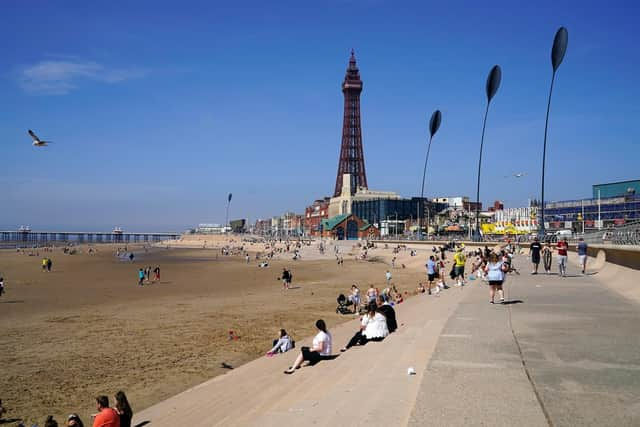Is Blackpool best placed to bounce back fastest after lockdown?
and live on Freeview channel 276
If correct, it would be welcome news for the resort's ailing tourism and hospitality sector, which has been hit hard during the lockdown.
Commercial real estate specialists Colliers’ inaugural Covid-19 Recovery Hotels Index listed Blackpool among 10 areas where hoteliers could see business pick up sooner than most.


Advertisement
Hide AdAdvertisement
Hide AdMarc Finney, head of hotels and resort consulting at he firm, said he believes that UK leisure destinations are less likely to feel large impact from dwindling overseas visitors and large events.
“So good news in the short-term for traditional British seaside resorts such as Blackpool and Bournemouth, national park locations and Devon and Cornwall,” he added.
“This said, some of these markets within the top 10 have traditionally been very small – so even though they appear top of the list, the uptick will be small in absolute terms.”
The research said that Plymouth topped the index as 86 per cent of its visitors are domestic tourists, while it also believes its large proportion of budget hotels will make it more resilient to the financial impact of the current crisis.
Advertisement
Hide AdAdvertisement
Hide AdMeanwhile, the Isle of Wight is also expected to benefit from a significant number of UK tourists, with domestic tourists visiting the area for leisure typically representing around 90 per cent of visits.
Mr Finney also said that hotels which focus on their rooms could outperform sites which typically secure more revenue through other services, such as gyms and spas.
He added: “This is due to social distancing protocols which will inevitably limit the use of public areas and ancillary facilities in the short-term, including restaurants, bars, meetings spaces and spa amenities.”
Meanwhile, typical tourist hotspots London, Oxford and Cambridge take the three bottom spots in the ranking of 35 destinations, as they look set to miss out on their normal level of foreign tourists.
Colliers also stressed that the cancellation of major events, such as Wimbledon, as well as vast numbers of conferences and exhibitions, would particularly impact the capital’s hotel sector.